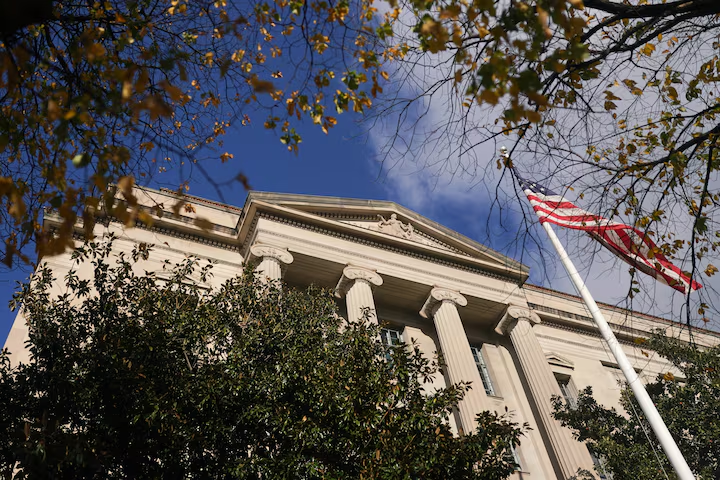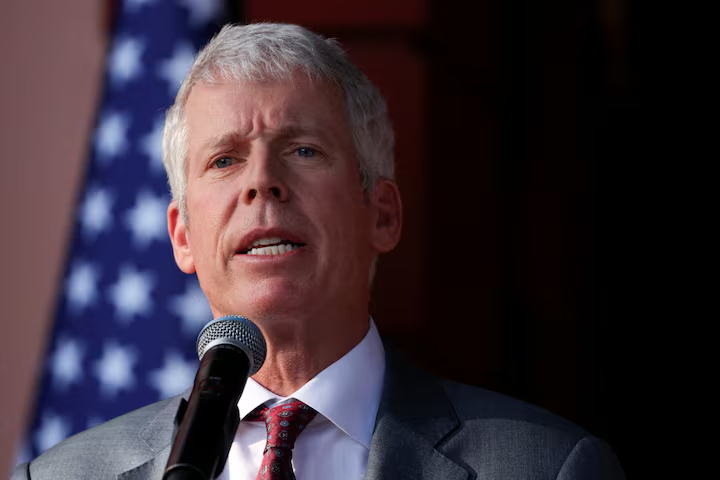
In the 1980 presidential election, Ronald Reagan famously asked the question, “Are you better off than you were four years ago?”
On Tuesday, Americans answered that question in the 2024 election by handing the White House to Donald J. Trump once again.
Faced with higher food prices, higher housing costs, and a feeling that the economy wasn’t working for them, American voters backed Trump.
Pundits who can’t fathom why anyone would ever vote for Trump need to remember what James Carville, a strategist for Bill Clinton, said in 1992, “It’s the economy, stupid.” For anyone trying to understand the election results, really it is that simple.
Sure, there are strategies to look at that helped Trump find victory in 2024 when he couldn’t in 2020.
The team approach of having Robert F. Kennedy Jr. campaign for him, reaching out to people concerned about health and big pharma – not normally Republican issues, certainly helped. Having Tulsi Gabbard, a former Democratic presidential hopeful, run a secondary campaign reaching out to Democrats, independents and women wary of Harris was a smart move.
“Is it easier for you to go buy things in the stores than it was four years ago?” Reagan asked in that 1980 debate with Jimmy Carter.
In many ways, Trump ran that as the main theme of his campaign, and it worked. The Democrats pushed issues like abortion or Trump being a threat to democracy, and that didn’t resonate beyond their base, people who were already voting for Kamala Harris.
On the economy, the Democrats had not only branded their plan, Harris also was praising Bidenomics while trying to tell voters she felt their pain and would bring about change. That obviously wasn’t a winning message in the end.
Neither was telling voters that the economy was doing great by citing a study or report from a far-off international body or an academic think tank — voters can’t eat a report from OECD (Organisation for Economic Co-operation and Development).
Voting is often an emotional experience as much as a decision based on facts and when the majority of American voters did their gut check, they felt they would be better off under Trump because they felt they were better off four years ago.
I think of Anne, the woman I met a few weeks ago in Arizona.
She lives in suburban Phoenix and while she had concerns about Trump and while the messaging from the Democrats about Project 2025 had clearly hit home with her, she was voting based on what was best for her family economically. In Maricopa County, home prices had skyrocketed 47% in four years, a trip to the grocery store was much more expensive than it was four years ago, Anne wasn’t feeling that Joe Biden, and now Harris, would deliver for her family.
Trump had won Maricopa County and Arizona in 2016, Biden flipped it blue in 2020 and on Tuesday, voters in Maricopa turned Arizona red again for Trump.
There were countless people like Anne, not just in Arizona but in Georgia, in Pennsylvania, Michigan and Wisconsin. These people aren’t Nazis or Nazi supporters, as the lunatics on too many cable news shows have tried to describe Trump and his supporters, these are simply people who answered the basic question – are you better off than you were four years ago.
The polls were pretty accurate, so far it seems, in estimating the 47% that Harris would get but they were off on Trump. As of writing, he sits at 51% of the national popular vote, that’s a bit above the 48-49% many polls in the last days gave Trump.
Did Trump have a quiet pool of voters who weren’t telling pollsters they were backing him because they didn’t want to be called Nazis?
There was plenty of talk about tone, rhetoric and divisiveness in this election campaign. It’s time for those on the so-called progressive side to examine themselves on that front.
Over the coming days and weeks there will be plenty of analysis of what each campaign did right and what they did wrong. Yet, when you consider where Trump was four years ago and what he has been through ever since, this is undoubtedly the greatest political comeback in American history.




